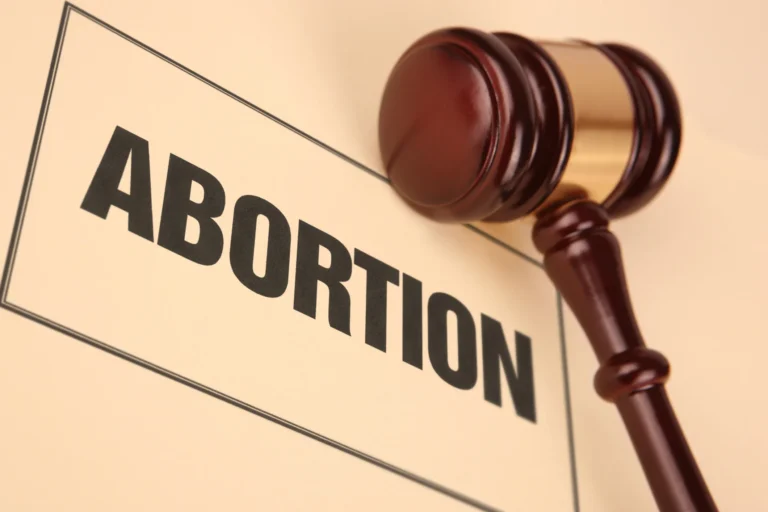Today, voices against the war in Ukraine are being raised around the world. The human condition leads us to mourn the lives lost and honor those who prevent those deaths.
The widespread anguish caused by these events strikes a tragic contrast with the studied nonchalance of the Biden Administration, U.N. agencies, and abortion NGOs when it comes to the war on unborn children.
These abortion promoters celebrate the legal murder of thousands of unborn children. They rage when their efforts are opposed. They praise and support those who promote or perform abortions, while they defame and even persecute pro-lifers.
Casualties in the war against the unborn this year will far outnumber those in the Ukraine war, but they will be not be featured at all in the carefully orchestrated daily media coverage.
In the past year, the balance of political forces has changed in Ibero-America. Without Trump in the White House, international and local pro-abortion NGOs no longer have anything to fear. In the Biden Administration, ample financial support from U.S. taxpayers continues to flow, causing more unborn lives to be lost.
Let’s take a brief look at some recent developments in the region.
Let’s Start with the Good News
Peru
The Peruvian Congress recently approved a declaration encouraging the nation’s participation in the celebration of the Day of the Unborn Child. Although it is only a declaration (Peruvian laws already protect the right to life from conception), this public affirmation is of vital importance not only for Peru but for the region. Even more important is its wide margin of victory- it was approved by an overwhelming majority (77 votes in favor, 20 abstentions, and only 7 opposed).
In Peru, as in the entire region, local NGOs enjoy funding from PPFA, IPPF, and other abortion transnationals. The U.S. Agency for International Development (AID) is careful not to support abortion openly, but this key player among international anti-life forces supports other NGOs or governmental entities that, in turn, support pro-abortion NGOs.
With this support, authorities or parliamentarians in favor of the pro-abortion agenda zealously promote initiatives aimed at the legalization of abortion. For more than three years, one project in Peru has worked with gynecologists in private and public entities to that end. Their efforts aim to expand the concept of “therapeutic abortion” to include cases of rape or fetal malformations because they “affect the health of women.”
A bill to decriminalize abortion in cases of rape was presented in 2021 and is awaiting debate and vote in Congress. The current Minister of Women, Diana Miloslavich, is a well-known feminist abortion activist. She recently has spoken out again in favor of abortion on demand. So has Janet Tello, a justice on the Supreme Court.
Peruvian bishops, most prominent among them Monsignor Javier Del Rio, Archbishop of Arequipa. have rejected these abortionist espousals. On a happier note, last Saturday the March for Life, the largest in Latin America, returned to the streets to celebrate the Day of the Unborn Child, established in Peruvian Law No. 27654.
Guatemala
On March 9, Guatemala was declared the “Pro-Life Capital of Latin America.” The President of Guatemala, Alejandro Gianmattei, celebrated this official designation with an international gathering that confirmed his strong pro-life leadership and challenged once again all the international pro-abortion forces who so strongly oppose him.
That same day the Guatemalan Congress approved a nominally pro-family law but included some extraneous elements that increased the penal sanction of abortion for women. Equally unnecessary was a law banning same-sex marriage (Guatemalan law already defines marriage as a union between a man and a woman).
More than one international expert had warned of the danger that these new laws represent, recognizing that they might serve the strategy of abortionist and LGTBI groups. They might seize the opportunity to denounce the new laws before the Inter-American Court of Human Rights. Undoubtedly, this ideological and pernicious Court would pronounce in favor of abortion and homosexual marriage, forcing Guatemala on the defensive.
Fortunately, President Gianmattei recognized this issue and asked the Congress to table the law. He later announced on Twitter that, if this law reached his office, he would veto it.
There Has Also Been Bad News
Judicial activism is the preferred path of abortionists. It is much easier than the congressional route. After all, it requires less effort and political cost to appoint or influence a few judges who are willing to distort constitutions and laws to interpret them in a fashion totally opposite to the intent of the bodies that adopted them. Pro-abortion forces have taken advantage of the fact that the Constitutional Courts and the higher courts comprise judges arbitrarily appointed by those in power. The other branches of government lack any legal means to limit their errors and excesses.
Colombia
In a slim vote of 5 to 4, the Constitutional Court approved free abortion up to 24 weeks of pregnancy on February 21. The pro-abortion lawsuit was presented by a coalition of 90 organizations called “Causa Justa” (“Just Cause”), a title that manifestly falsifies the culture of Colombian society.
The vast majority of these organizations are in fact local creations of the usual international abortionist forces: the Guttmacher Institute, U.N. agencies, IPPF (International Planned Parenthood Federation), and PPFA (Planned Parenthood Federation Of America), a connection which is easily demonstrated with a quick Internet search.
On February 27, “United for Life” sponsored a national mobilization in more than 100 cities. The Colombian Episcopal Conference took the occasion to powerfully condemn both abortion and the court’s decision as immoral and violent acts.
With this decision, the Court radically changed its position as of March 2020, when it left the abortion law in place and kept the legal protection of the unborn in force. Let’s remember that since 2006 in Colombia, only therapeutic abortion, rape, and malformations were accepted as non-punishable exceptions.
Mexico
Like Colombia, Mexico’s National Supreme Court of Justice radically changed its approach to abortion coinciding with the new Biden Administration’s pressure on its international partners to advance the pro-abortion cause. On September 7, 2021, in a case brought in the State of Coahuila, Chief Justice Arturo Zaldívar and the same justices who had earlier supported limits on abortion did an about-face and decriminalized abortion.
Unfortunately, the reasoning used by the court bodes ill for the unborn, creating a strong precedent for decriminalizing abortion in the rest of the states in Mexico. Nonetheless, pro-life groups have been fighting heroically in every one of them, and will continue to do so whatever the courts do.
Ecuador
On April 28, 2021, the Constitutional Court of Ecuador declared the criminalization of abortion in cases of rape unconstitutional. The court ordered Congress to issue a “norm” that reflected the decision. As a consequence, the Congress issued a 50-page norm elevating abortion in cases of rape to the category of a right last month.
President Guillermo Lasso, openly Catholic and pro-life, partially vetoed the law, eliminating instances in which the law mentions abortion as a right. He also vetoed several other excesses, including one prohibiting doctors from denouncing these crimes. The Congress is expected to accept these amendments. If so, the final version of the law would set a restrictive norm that would be difficult to circumvent, unlike less restrictive laws in other countries that are more permissive.
Chile And the Constitutional Route
On March 15, the Constitutional Assembly approved an article on “sexual and reproductive rights” that enshrines voluntary interruption of pregnancy. The vote was 108 in favor and 39 opposed, with six abstentions. The final text will be the subject of a referendum this year.
The new norm establishes that “all persons are entitled to sexual and reproductive rights… ensuring… the conditions for… a voluntary interruption of pregnancy….”
Former pro-life presidential candidate José Antonio Kast lamented that now in Chile free abortion will be legal for up to nine months of pregnancy.
The outlook in Chile is quite discouraging, since President Gabriel Boric is a radical leftist who has appointed Camila Vallejo, leader of the Chilean feminist lobby, as Secretary-General of his government.
The Chilean Episcopal Conference has publicly stated that this Constitution will not be accepted by the Catholic faithful.
******
Carlos Polo is the Director of PRI’s Iberoamerica Offices.








